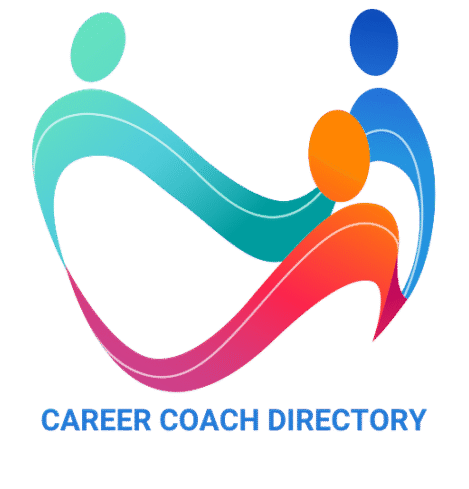
The Challenges of Working as a Career Coach: Navigating Client Dynamics and Industry Trends
The role of a career coach is both rewarding and demanding, navigating a continuously evolving job market shaped by technological advancements and shifting industry trends. Coaches must stay updated with these developments to effectively guide their clients toward achieving their career goals. This requires a combination of extensive knowledge, empathy, and adaptability.

One key challenge career coaches face is personalized guidance, where they must develop tailored strategies that align with individual client aspirations while overcoming systemic job market obstacles. Balancing the need for empathy and professionalism, career coaches rely on building strong trust-based relationships with clients, pushing them to reach optimal potential.
The journey of a career coach involves more than just identifying career paths; it includes addressing individual and nuanced client needs. As clients look for transformative change, coaches play a pivotal role in equipping them with tools to make informed career decisions. The complexities of this role highlight the importance of ongoing education and a commitment to personal growth, essential for navigating the dynamic landscape of career coaching.
Understanding the Career Coaching Industry

The career coaching industry is a dynamic field that has evolved significantly, requiring specific qualifications and certifications. This section explores these transformations and essential credentials.
Evolution of Career Coaching
Career coaching has transitioned from informal guidance to a structured profession. Initially, it involved basic career advice, but today it encompasses comprehensive services like personalized career planning and skill development. Technology and globalization have fostered more diverse and accessible coaching services. Online platforms now allow coaches to reach a broader audience, necessitating enhanced skills in digital communication. This evolution has made it imperative for coaches to stay updated with the latest industry trends to remain competitive.
Qualifications and Certifications
Qualifications for becoming a career coach typically include a college degree and formal training in coaching methodologies. Certifications from recognized bodies, such as the International Coach Federation (ICF), are essential for establishing credibility and assurance of quality. These certifications require rigorous coursework, practice, and examinations. The continuous education they entail ensures that coaches remain knowledgeable about evolving strategies and techniques. Certification offers a standard of excellence, setting certified coaches apart in a competitive field.
Key Competencies and Challenges

Career coaches must possess versatile skills to effectively navigate challenges and meet diverse client needs. They must exhibit adaptability and commitment to continuous learning to remain effective.
Adapting to Diverse Client Needs
Career coaches encounter a wide range of clients, each with unique goals, backgrounds, and challenges. They must be culturally competent to tailor coaching methods that resonate with clients from various cultural and professional backgrounds. This skill enables them to support clients’ career growth by understanding unique circumstances and career landscapes.
To adapt effectively, coaches evaluate each client’s specific needs and apply different coaching methodologies, such as solution-focused and cognitive-behavioral approaches. By doing so, they empower clients to overcome barriers and achieve their objectives.
Maintaining Professional Development
Continuous professional development is crucial for career coaches to remain relevant in an ever-evolving job market. They must stay updated with industry trends, coaching techniques, and market demands. Participating in workshops, seminars, and professional networks helps them acquire new knowledge and insights.
Achieving certifications and engaging in lifelong learning ensures they deliver effective and relevant coaching services. This commitment to development enhances their skills and improves their ability to guide clients through complex career transitions.
Effective Communication Strategies
Effective communication is a cornerstone of successful career coaching. Coaches must listen actively to understand clients’ needs and efficiently convey advice and strategies. Building trust and rapport is essential for creating a safe environment where clients feel comfortable sharing their aspirations and fears.
They leverage various communication techniques, including motivational interviewing and active listening, to facilitate productive coaching sessions. This involves asking powerful questions and providing clear, actionable feedback that encourages clients to move forward confidently in their careers.
Business Management and Growth

Career coaches must focus on effective marketing strategies and building a robust client base to ensure sustainable business growth. These elements are critical in establishing a successful practice and maintaining professional development.
Marketing and Branding for Coaches
Marketing is crucial for career coaches to distinguish themselves in a competitive field. Brand identity plays a pivotal role, as it defines how coaches are perceived by potential clients. A strong brand should communicate a coach’s unique value and expertise in addressing clients’ needs.
Social media platforms are effective tools for reaching a broader audience. Coaches should create engaging content that resonates with their target demographic. Content marketing, such as blogs or webinars, allows them to showcase their knowledge and provide value to potential clients.
Networking is equally important. Establishing connections with industry professionals can lead to referrals and collaborative opportunities. Word-of-mouth remains a potent marketing strategy in this field.
Building a Client Base
A solid client base is essential for the long-term success of a career coaching business. Understanding the needs and challenges of the target audience helps in crafting effective services. Conducting market research can provide insights into what clients are seeking.
Offering free initial consultations can attract potential clients by providing a risk-free opportunity to experience the benefits of coaching. This approach can help coaches demonstrate their expertise and build trust with potential clients.
Lastly, client retention should not be overlooked. Providing exceptional service and maintaining strong client relationships can lead to repeat business and referrals, both of which are vital for growth. Regular feedback and communication enhance the coaching experience, fostering client loyalty.
The Challenges of Working as a Career Coach: Navigating Client Dynamics and Industry Trends
The role of a career coach is both rewarding and demanding, navigating a continuously evolving job market shaped by technological advancements and shifting industry trends. Coaches must stay updated with these developments to effectively guide their clients toward achieving their career goals. This requires a combination of extensive knowledge, empathy, and adaptability.

One key challenge career coaches face is personalized guidance, where they must develop tailored strategies that align with individual client aspirations while overcoming systemic job market obstacles. Balancing the need for empathy and professionalism, career coaches rely on building strong trust-based relationships with clients, pushing them to reach optimal potential.
The journey of a career coach involves more than just identifying career paths; it includes addressing individual and nuanced client needs. As clients look for transformative change, coaches play a pivotal role in equipping them with tools to make informed career decisions. The complexities of this role highlight the importance of ongoing education and a commitment to personal growth, essential for navigating the dynamic landscape of career coaching.
Understanding the Career Coaching Industry

The career coaching industry is a dynamic field that has evolved significantly, requiring specific qualifications and certifications. This section explores these transformations and essential credentials.
Evolution of Career Coaching
Career coaching has transitioned from informal guidance to a structured profession. Initially, it involved basic career advice, but today it encompasses comprehensive services like personalized career planning and skill development. Technology and globalization have fostered more diverse and accessible coaching services. Online platforms now allow coaches to reach a broader audience, necessitating enhanced skills in digital communication. This evolution has made it imperative for coaches to stay updated with the latest industry trends to remain competitive.
Qualifications and Certifications
Qualifications for becoming a career coach typically include a college degree and formal training in coaching methodologies. Certifications from recognized bodies, such as the International Coach Federation (ICF), are essential for establishing credibility and assurance of quality. These certifications require rigorous coursework, practice, and examinations. The continuous education they entail ensures that coaches remain knowledgeable about evolving strategies and techniques. Certification offers a standard of excellence, setting certified coaches apart in a competitive field.
Key Competencies and Challenges

Career coaches must possess versatile skills to effectively navigate challenges and meet diverse client needs. They must exhibit adaptability and commitment to continuous learning to remain effective.
Adapting to Diverse Client Needs
Career coaches encounter a wide range of clients, each with unique goals, backgrounds, and challenges. They must be culturally competent to tailor coaching methods that resonate with clients from various cultural and professional backgrounds. This skill enables them to support clients’ career growth by understanding unique circumstances and career landscapes.
To adapt effectively, coaches evaluate each client’s specific needs and apply different coaching methodologies, such as solution-focused and cognitive-behavioral approaches. By doing so, they empower clients to overcome barriers and achieve their objectives.
Maintaining Professional Development
Continuous professional development is crucial for career coaches to remain relevant in an ever-evolving job market. They must stay updated with industry trends, coaching techniques, and market demands. Participating in workshops, seminars, and professional networks helps them acquire new knowledge and insights.
Achieving certifications and engaging in lifelong learning ensures they deliver effective and relevant coaching services. This commitment to development enhances their skills and improves their ability to guide clients through complex career transitions.
Effective Communication Strategies
Effective communication is a cornerstone of successful career coaching. Coaches must listen actively to understand clients’ needs and efficiently convey advice and strategies. Building trust and rapport is essential for creating a safe environment where clients feel comfortable sharing their aspirations and fears.
They leverage various communication techniques, including motivational interviewing and active listening, to facilitate productive coaching sessions. This involves asking powerful questions and providing clear, actionable feedback that encourages clients to move forward confidently in their careers.
Business Management and Growth

Career coaches must focus on effective marketing strategies and building a robust client base to ensure sustainable business growth. These elements are critical in establishing a successful practice and maintaining professional development.
Marketing and Branding for Coaches
Marketing is crucial for career coaches to distinguish themselves in a competitive field. Brand identity plays a pivotal role, as it defines how coaches are perceived by potential clients. A strong brand should communicate a coach’s unique value and expertise in addressing clients’ needs.
Social media platforms are effective tools for reaching a broader audience. Coaches should create engaging content that resonates with their target demographic. Content marketing, such as blogs or webinars, allows them to showcase their knowledge and provide value to potential clients.
Networking is equally important. Establishing connections with industry professionals can lead to referrals and collaborative opportunities. Word-of-mouth remains a potent marketing strategy in this field.
Building a Client Base
A solid client base is essential for the long-term success of a career coaching business. Understanding the needs and challenges of the target audience helps in crafting effective services. Conducting market research can provide insights into what clients are seeking.
Offering free initial consultations can attract potential clients by providing a risk-free opportunity to experience the benefits of coaching. This approach can help coaches demonstrate their expertise and build trust with potential clients.
Lastly, client retention should not be overlooked. Providing exceptional service and maintaining strong client relationships can lead to repeat business and referrals, both of which are vital for growth. Regular feedback and communication enhance the coaching experience, fostering client loyalty.

